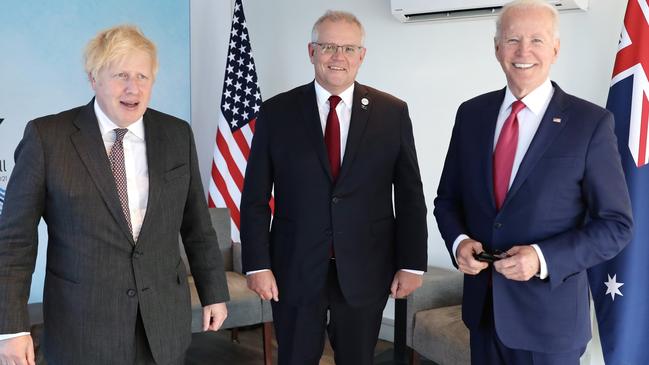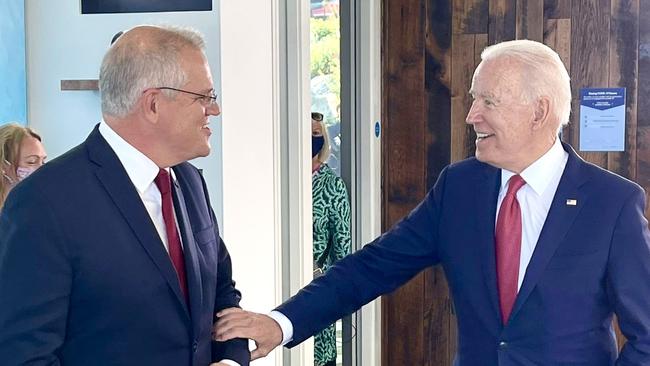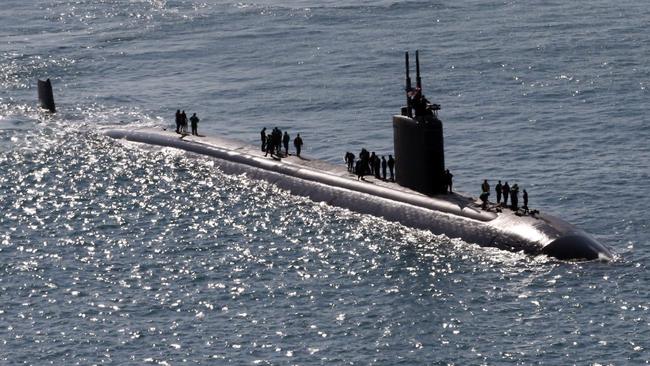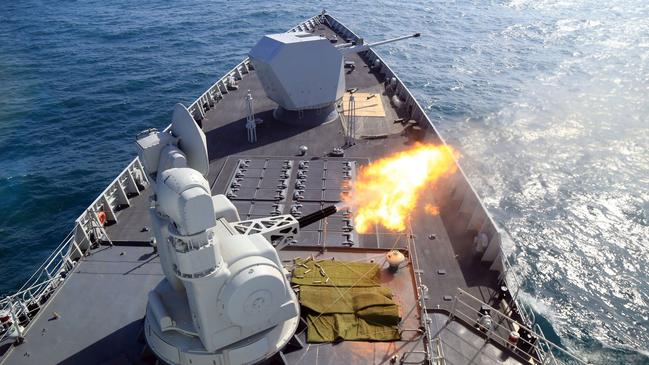
The US President might have forgotten Scott Morrison’s name at Wednesday’s joint press conference at the White House, but the people making the big decisions are wise enough to see the strategic potential, indeed necessity, of a common alliance among the world’s pre-eminent English-speaking countries to counter growing Chinese belligerence.
The popular idea the hasty withdrawal was a sign of US weakness and retreat has been up-ended by an agreement that in effect guarantees Australia’s security even more comprehensively than it was under the existing ANZUS treaty, now in its 70th year.
The agreement breathes new life into the Biden administration’s pivot to Asia and commitment to democracy, themes that have underpinned the President’s public utterances on international relations since he came to the White House in January.

In America’s eyes the war on terror is over, the war for democracy has begun, which should suit a sparsely populated Australia understandably more concerned about its long-term longevity than random acts of Islamic terrorism.
Australia has been promoted from “deputy sheriff”, as former president George W Bush once said, to sheriff, ultimately with its own fleet of nuclear-powered submarines.
China will be furious.
If the mere suggestion of a fair inquiry into the origins of Covid-19 was enough to induce blockades on Australian agricultural exports, we might expect reprisals.

Regardless Australia is in a stronger position now, militarily and even economically, given the long-term security of investing in Australia has been assured. The combined forces of the three nations, combined far richer and more advanced than China, will give Beijing greater pause before seeking to expand its sphere of influence politically.
The partnership is a reminder, however out of fashion the bonds of language, principles and culture may be at our universities, they are critical to an effective alliance. France, the other major pacific power, with its own nuclear submarines technology, has been left out arrangement.

President Biden, notably, was at pains to assuage French pride in his remarks.
The US, UK and Australian governments deserve much credit for forging a new alliance that caught even seasoned observers in Washington by surprise.
Canada has fallen behind Australia in the international defence pecking order, albeit well ahead of New Zealand, which has dropped well down as its reputation for Kowtowing to Chinese interests grows in Washington.
The construction of a fleet of nuclear-powered submarine in Adelaide also shatters the anti-nuclear shibboleth of Australian politics and security policy. It will be hard for Labor and the Greens to support, assuming they do, nuclear powered submarines but oppose the energy that powers them
It’s a pity the Prime Minister ruled out the development of a civilian nuclear power capability for Australia, but the door is now ajar to the scrapping of the ridiculous own goal that is the 1999 prohibition on nuclear energy enacted by the Howard government in the late 1990s.








The new military agreement between the US, UK and Australia puts paid to the idea the US is stepping back from its longstanding commitment to defend democracy, a worrying spectre in the wake of the withdrawal from Afghanistan.